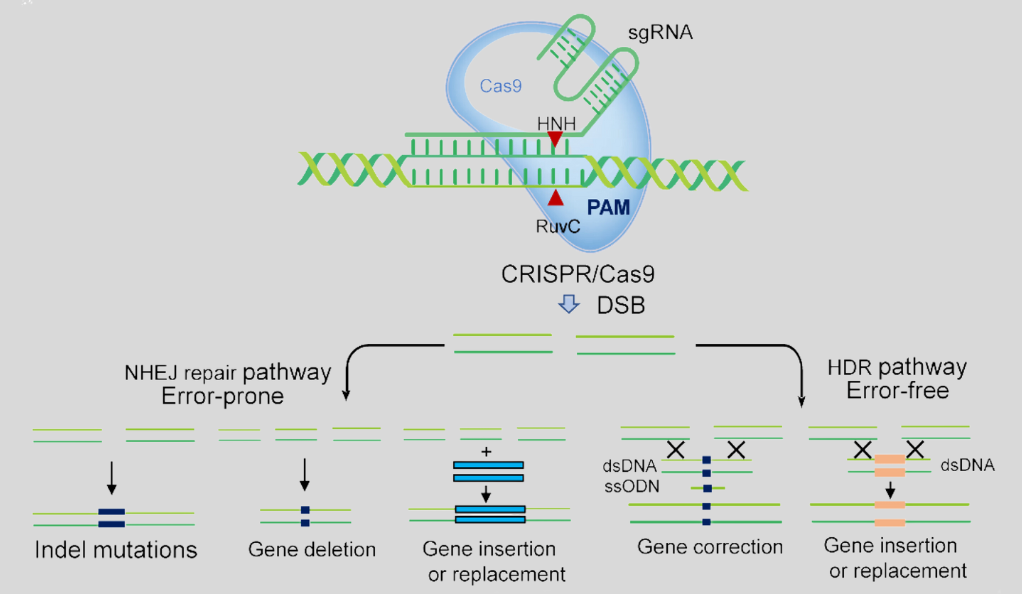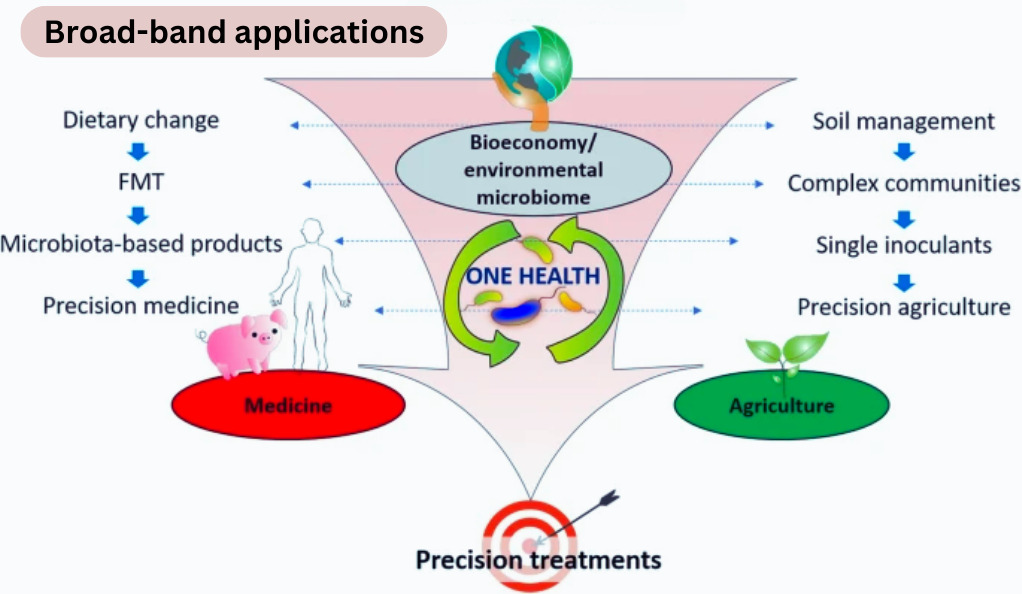Biotechnology Breakthroughs: Rewriting the Code of Life
Biotechnology has always been at the forefront of human advancement. From the earliest days of fermentation to the latest CRISPR gene-editing techniques, we’ve been harnessing the power of biology to improve our lives. As we delve deeper into the 21st century, the pace of these breakthroughs is accelerating, promising solutions to some of humanity’s most pressing challenges.
The fusion of technology and biology is ushering in an era where the impossible becomes possible. Diseases that were once incurable are now within our grasp to treat or even eradicate. The way we produce food, medicine, and even energy is undergoing a seismic shift, all thanks to biotechnological innovations.
CRISPR and Gene Editing: Precision at the Genetic Level
The discovery of CRISPR-Cas9 has revolutionized the field of genetics. This tool allows scientists to make precise edits to DNA, potentially curing genetic diseases and paving the way for more resilient crops. The beauty of CRISPR lies in its simplicity and efficiency, making genetic editing more accessible than ever before.
Beyond its immediate applications, CRISPR opens the door to understanding our DNA better. By manipulating genes, we can uncover their functions, interactions, and even their evolutionary history. This knowledge can lead to more targeted therapies and a deeper understanding of life itself.

Synthetic Biology: Designing Life from Scratch
Synthetic biology goes beyond just editing existing organisms. It’s about building new life forms from the ground up. By piecing together genetic parts, scientists can create organisms tailored to specific tasks, from biofuel production to waste decomposition. This approach is akin to programming but using the language of life.
Imagine a future where bacteria are designed to consume plastic waste, or algae are engineered to produce biofuels efficiently. These are not mere fantasies but real projects that scientists are working on, showcasing the transformative potential of synthetic biology.
Personalized Medicine: Tailored Treatments for Individuals
The one-size-fits-all approach to medicine is becoming obsolete. With advancements in biotechnology, we’re moving towards treatments tailored to an individual’s genetic makeup, ensuring more effective and fewer side effects. This shift means that two individuals with the same condition might receive entirely different treatments based on their genetic profiles.
The potential for personalized medicine expands. Not only can we treat diseases more effectively, but we can also predict and prevent potential health issues before they manifest, leading to a more proactive approach to health and wellness.
Bioprinting: The Future of Organ Transplants
The shortage of organ donors has always been a significant challenge. Bioprinting, using cells to print functional organs, promises a future where organs are readily available for those in need. This technology could end the agonizing wait many patients face and reduce the risks associated with organ transplants.
While still in its infancy, bioprinting has shown immense promise. Recent advancements have seen the successful printing of simpler tissues like skin and cartilage. As the technology matures, the hope is to print more complex organs like kidneys or even hearts.
Brain-Computer Interfaces: Bridging Biology and Technology
By directly linking the brain to computers, we’re opening up possibilities for enhanced cognitive abilities, treatment of neurological disorders, and even direct communication through thought. These interfaces can decode neural signals and translate them into actions, allowing, for instance, paralyzed individuals to control prosthetic limbs or even computers with their minds.
The potential applications of brain-computer interfaces are vast. Beyond medical applications, there’s the tantalizing possibility of enhancing human cognition, merging the computational power of machines with the creativity and adaptability of the human brain.
Microbiome Research: Understanding Our Inner Ecosystem
Our bodies are home to trillions of microbes that play a crucial role in our health. By understanding and manipulating this microbiome, we can potentially treat diseases, improve digestion, and even combat depression. Recent research has shown a profound connection between our gut health and our overall well-being.
As we delve deeper into the intricacies of the microbiome, we’re discovering that these tiny organisms influence everything from our mood to our immune response. By nurturing a healthy microbiome, we could unlock new avenues for wellness and disease prevention.

Quantum Computing in Biotechnology: A Synergistic Relationship
Quantum computing, with its immense computational power, is set to accelerate biotechnological research. From drug discovery to understanding complex biological systems, the synergy between these fields is undeniable. Quantum computers can process vast amounts of data at speeds unimaginable with classical computers.
In biotechnology, where complex simulations and data analysis are the norms, quantum computing can be a game-changer. For instance, simulating protein folding or drug interactions, tasks that would take traditional computers centuries, could be done in mere hours or days with quantum computers.
Biotech Startups: The Pioneers of Tomorrow
Innovative startups are often at the forefront of biotechnological breakthroughs. By fostering a culture of innovation and risk-taking, they’re pushing the boundaries of what’s possible. These startups, backed by venture capital and driven by visionary leaders, are where many of the next big biotech innovations will emerge.
The ecosystem supporting these startups, from incubators to investors, plays a crucial role in bringing these innovations to market. As they tackle everything from genetic therapies to sustainable agriculture, these startups are shaping the future of biotechnology.
Ethical Considerations: Navigating the Biotech Frontier
With great power comes great responsibility. As we rewrite the code of life, it’s imperative to consider the ethical implications and ensure that our advancements benefit humanity as a whole. The potential for misuse, from creating designer babies to bioweapons, is a genuine concern.
It’s crucial to have a global dialogue on these issues, involving scientists, ethicists, policymakers, and the general public. By setting clear guidelines and fostering open discussions, we can navigate the biotech frontier responsibly and ethically.
Conclusion: The Boundless Potential of Biotechnology
As we continue to push the boundaries of biotechnology, the potential for positive change is immense. From curing diseases to addressing global challenges like hunger and pollution, the future looks promising. However, with these advancements come responsibilities, and it’s up to us to ensure that biotechnology serves the greater good.
FAQs
CRISPR-Cas9 is a gene-editing tool that allows for precise modifications to DNA. It’s revolutionary because of its accuracy and versatility, offering potential cures for genetic diseases and advancements in various fields, from agriculture to medicine. The system, derived from a bacterial defense mechanism, has democratized genetic research, making it accessible to labs worldwide. Its potential applications are vast, from agriculture to medicine, making it one of the most significant biotechnological breakthroughs in recent history.
Personalized medicine tailors treatments based on an individual’s genetic makeup, ensuring that they receive the most effective treatment with the least side effects. Traditional medicine often adopts a one-size-fits-all approach. With the advent of genomics and biotechnology, we can now understand the unique genetic makeup of each individual. This understanding allows doctors to prescribe treatments that are most likely to work for the individual, minimizing trial and error and maximizing efficacy.
While still in the early stages, bioprinted organs have shown promise in functioning similarly to natural ones. As the technology matures, the goal is to have them fully integrate and function within the human body. The vision is to have a future where organ shortages are a thing of the past, and patients can receive custom-printed organs tailored to their needs, reducing the risks of rejection and other complications.
Quantum computing offers unparalleled computational power, allowing for the simulation and analysis of complex biological systems. This accelerates research, from drug discovery to understanding intricate biological interactions. Quantum computers operate on the principles of quantum mechanics, allowing them to process vast amounts of data simultaneously. In biotechnology, where simulations can be incredibly complex, this power can lead to breakthroughs that were previously unimaginable.
Yes, like all technologies, biotechnology poses risks. These include unintended genetic mutations, ethical concerns, and potential misuse. It’s crucial to approach advancements with caution, ensuring thorough testing and ethical considerations. As we gain the power to edit genes and create new life forms, we must also develop the wisdom to use these capabilities responsibly, considering both the immediate and long-term implications of our actions.
